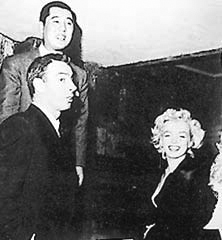Once upon a time, Master Hobson, who was a rich haberdasher in the Poultry, lying in St Alban’s, there came certain musicians to play at his chamber door, hoping that, as they filled his ears with their music, he would fill their purses with money; whereupon he told one of the servants of the inn (that waited upon him) to go and tell them that he did not then want to hear their music, for he mourned for the death of his mother. So the musicians, disappointed of their purpose, went away. The fellow that heard him speak of mourning, asked him how long it was since he buried his mother. ‘Truly,’ quoth Master Hobson, ‘it is now very nearly forty years ago.’
— William Carew Hazlitt, The New London Jest Book, 1871



